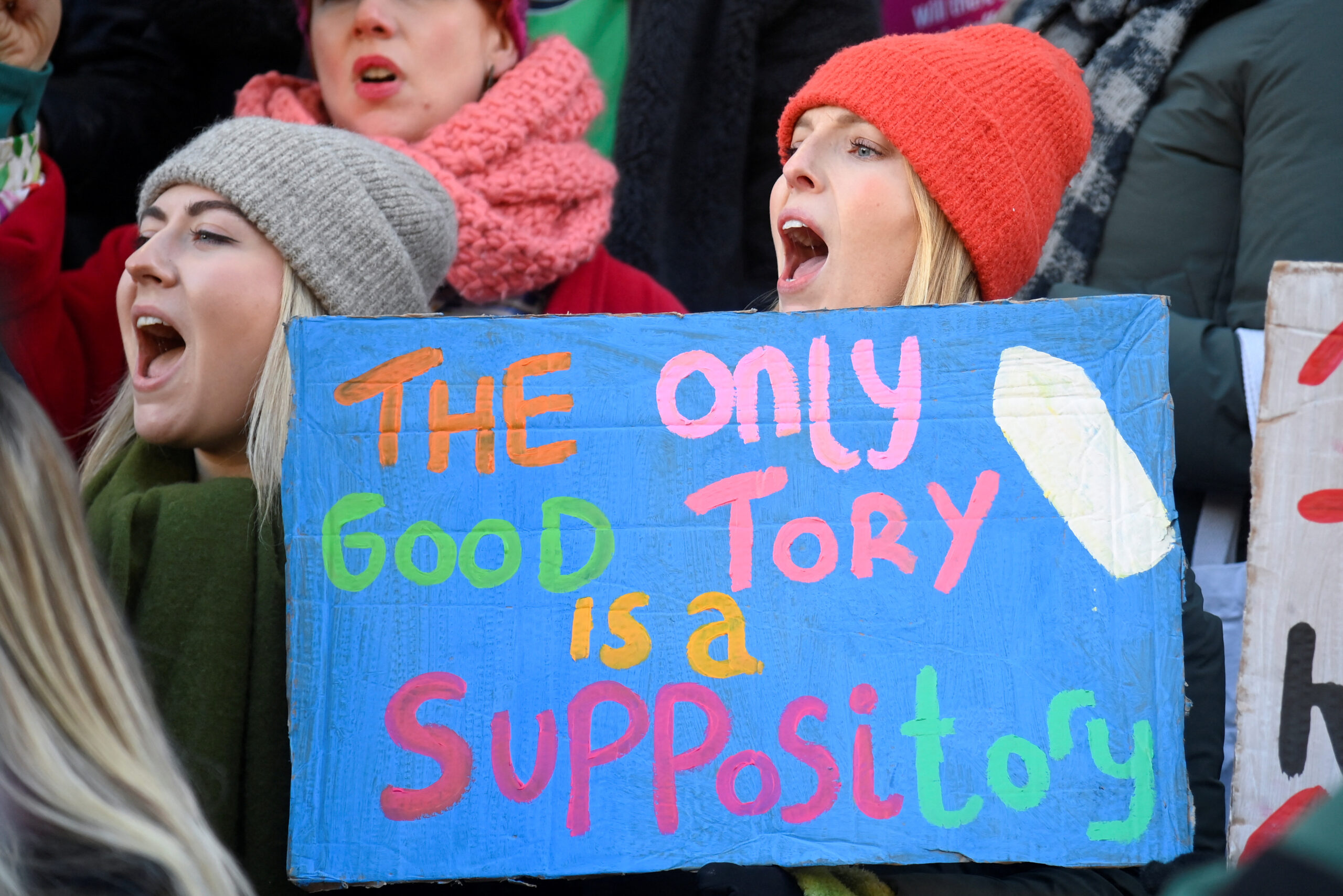Trust Me, Private Healthcare is a Shitshow
Want to spend your life on the phone to insurance companies? Be my guest.
by Luke Savage
2 February 2023

In 1946 when he proposed the creation of a national health service to parliament, Labour health minister Nye Bevan set out one fundamental principle: “Medical treatment,” he said, “should be made available to rich and poor alike in accordance with medical need and no other criteria. The essence of a satisfactory health service is that the rich and poor are treated alike. Poverty is not a disability and wealth is not an advantage.” Various governments, both Tory and New Labour, have for years sought to undercut these founding ideals – but recent developments may pose a greater threat to Bevan’s vision than any before.
On the heels of Rishi Sunak’s meeting with representatives from the country’s largest corporate healthcare companies earlier this month, former health secretary Sajid Javid published an op-ed in the Times making the case for “extension of the contributory principle” as a means of shortening wait times in the NHS. Complaining that “appreciation for the NHS has become a religious fervour and a barrier to reform”, Javid’s most significant proposal is the introduction of means-tested fees for GP appointments and A&E visits. Far from blocking this leap towards privatisation, Labour leader Keir Starmer and his shadow health secretary Wes Streeting are leaving the door open to increased reliance on the private sector.
Much as Tory and Labour politicians who dabble in NHS privatisation often take pains to rhetorically distance themselves from the American healthcare system, such proposals reflect the same noxious commodity logic on which that system is based – and which, if realised, would cross a Rubicon from which it might prove difficult to turn back.
At its core, the US system is premised on something like the inverse of Bevan’s vision for the NHS. With the exception of public programs like Medicare (more on that in a moment), healthcare is treated as a product to be bought and sold in the marketplace. Where a public system has patients, a private one has consumers who must navigate a morass of private clinics, hospitals and insurance schemes whose highest loyalty is to their shareholders.
Among other things, the American model is a case study of how the principle of privatisation fails even on its own terms. While those who champion the dynamism of the free market often insist it can cut bureaucracy, increase efficiency and reduce costs, the truth is the exact opposite.
The main reason is that, as Meagan Day and Bhaskar Sunkara observed in 2018, much of the expenditure that happens within a private healthcare system has nothing to do with keeping people healthy at all. Instead, the profit motive necessitates the creation of vast new private bureaucracies concerned with insurance and delivery, themselves accompanied by bloated executive salaries and a host of other costs absent from a public system; it’s no accident that the Canadian and British systems (both state-funded) are much less expensive than the US one. Were additional privatisation introduced into the NHS, it would thus almost certainly come with new administrative costs that would in turn be passed on to the state and the public.
The more critical indictment of the US system, however, is a moral one. In allowing the marketplace to dominate the health sector, America’s political and economic elites have ensured a grotesque hierarchy of care in which millions who require treatment are forced to take on absurd mountains of debt in order to receive it; others simply forgo medical attention. These are not incidental byproducts of privatisation but its logical and inevitable outcome. The moment a doctor’s appointment comes with a price tag attached is also the moment at which healthcare ceases to be structured around human need. From there, the descent into a more unequal society is more or less guaranteed.
The fact is, free-at-point-of-use public healthcare systems enjoy widespread popularity, not because of irrational “religious fervour”, but because they work. Alongside social security, Medicare remains one of the most widely supported government programs in the United States – so much so that a supermajority of voters wants to see it dramatically expanded. Even in America, where the elite consensus on healthcare policy is significantly to the right of Britain’s, what most want is not further privatisation but liberation from its daily indignities, endless costs and bureaucratic headaches.
The NHS is still a long way from resembling such a system. Nonetheless, the American model serves as a powerful rejoinder to anyone who thinks the introduction of patient fees and private profiteering will do anything other than erode its most essential principle.
Luke Savage is a Jacobin columnist and the author of The Dead Center: Reflections on Liberalism and Democracy After the End of History.


